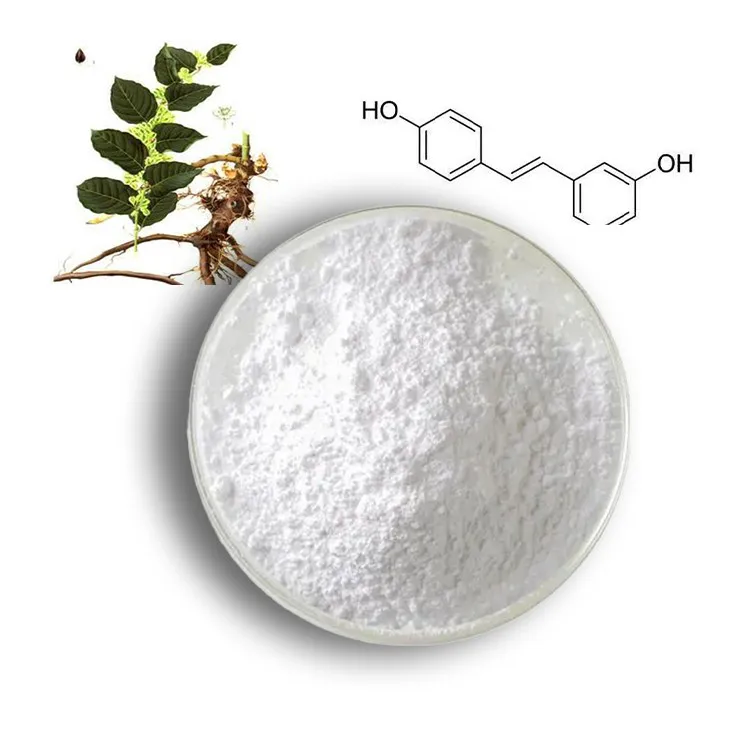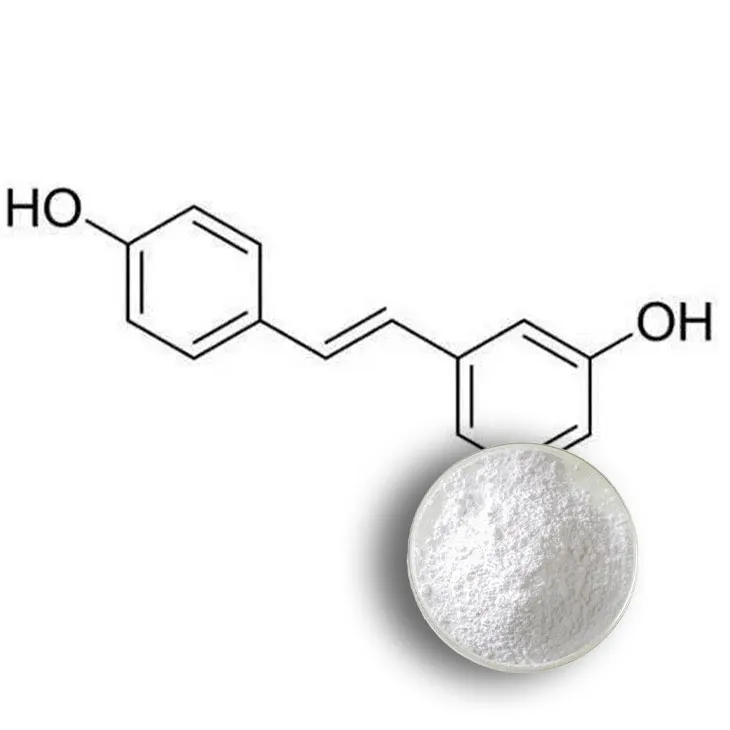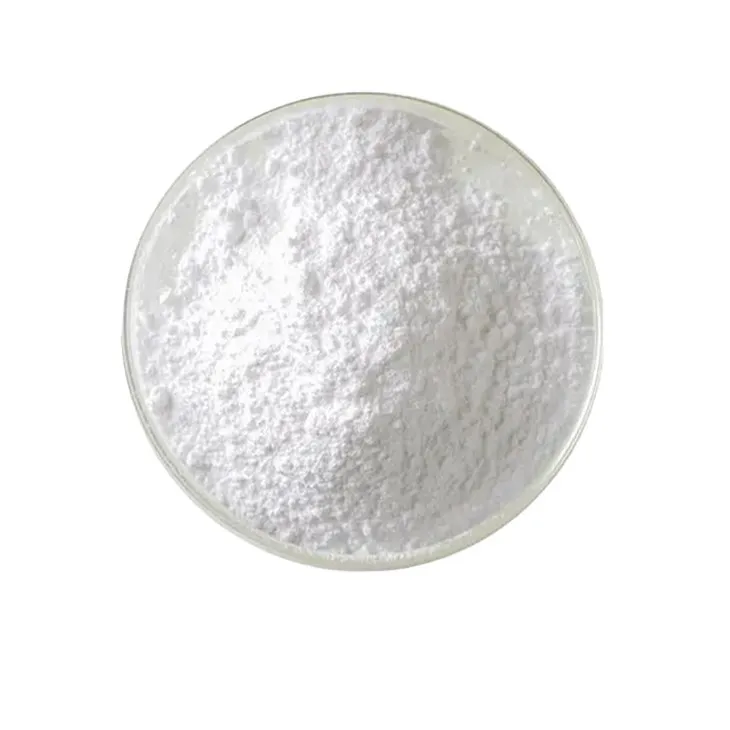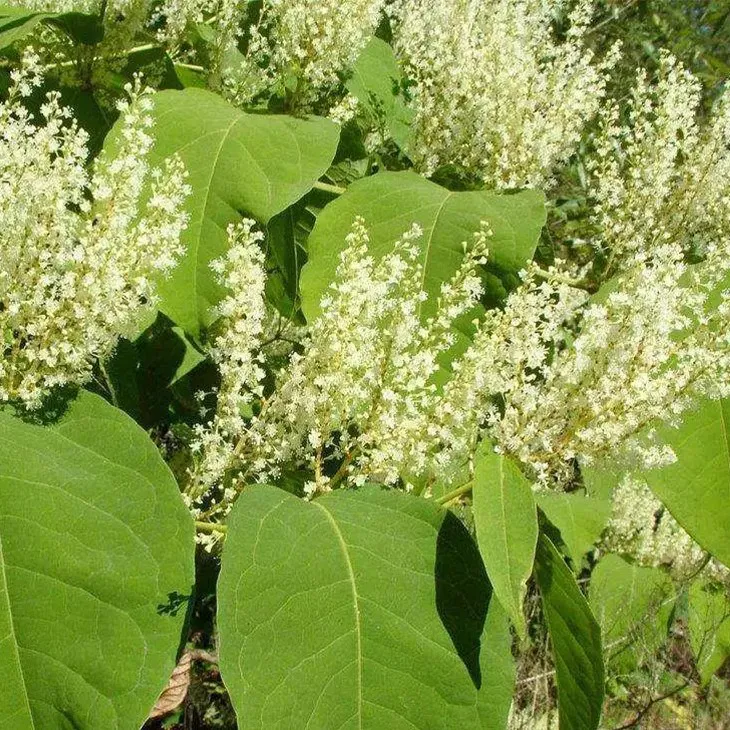- 0086-571-85302990
- sales@greenskybio.com
Organic non - transgenic resveratrol extract.
2024-11-28

1. Introduction to Organic Non - Transgenic Resveratrol extract
Organic non - transgenic Resveratrol extract is a truly remarkable natural product. Originating from organic sources, it offers a pure and natural alternative. It is free from synthetic pesticides and genetically modified organisms (GMOs), which is becoming increasingly important in today's health - conscious and environmentally - aware society.

2. Resveratrol's Biological Activities
2.1 Antioxidant Properties
Resveratrol is a potent antioxidant. Oxidative stress is a major factor in numerous health problems, such as cardiovascular diseases, neurodegenerative disorders, and certain types of cancer. Antioxidants work by neutralizing free radicals, which are highly reactive molecules that can damage cells and DNA. Resveratrol's antioxidant activity helps to protect cells from this oxidative damage, thus potentially reducing the risk of developing these diseases.
2.2 Anti - Inflammatory Effects
Chronic inflammation is associated with a variety of conditions, including arthritis, diabetes, and some autoimmune diseases. Resveratrol has shown promise in alleviating chronic inflammation. It can modulate the body's inflammatory response by interacting with various signaling pathways involved in inflammation. For example, it may inhibit the production of pro - inflammatory cytokines, which are molecules that play a key role in promoting inflammation.
2.3 Potential in Cancer Research
Although more research is needed, there are indications that resveratrol might have some preventive or even therapeutic potential in cancer. It could act at different stages of cancer development. For instance, it may help in preventing the initiation of cancer by protecting DNA from damage. Additionally, it might also play a role in inhibiting the growth and spread of cancer cells. Some studies have shown that resveratrol can induce apoptosis (programmed cell death) in cancer cells, while leaving normal cells relatively unaffected.

3. Applications in Agriculture
Plants produce resveratrol as a defense mechanism against various stresses, such as fungal infections, UV radiation, and drought. Understanding the properties of organic non - transgenic Resveratrol extract could lead to new ways of protecting crops. For example:
- Developing natural pesticides based on resveratrol's antifungal and antibacterial properties. This could reduce the reliance on synthetic pesticides, which often have negative environmental impacts.
- Using resveratrol - related strategies to enhance the stress tolerance of crops. By manipulating the resveratrol biosynthesis pathway in plants, it may be possible to create more resilient crop varieties.

4. Role in the Pharmaceutical and Nutraceutical Industries
4.1 Pharmaceutical Industry
The pharmaceutical industry is increasingly interested in resveratrol due to its potential health benefits. It could be developed into drugs for various diseases. However, there are challenges in formulating resveratrol - based drugs, such as its low bioavailability. Scientists are exploring different ways to overcome these challenges, such as using novel drug delivery systems or modifying the chemical structure of resveratrol to improve its absorption and effectiveness.
4.2 Nutraceutical Industry
In the nutraceutical industry, organic non - transgenic resveratrol extract is being used in dietary supplements. Consumers are becoming more aware of the importance of natural products for maintaining good health. Resveratrol - containing supplements are marketed for their potential antioxidant, anti - inflammatory, and anti - aging effects. However, it is important to note that the regulation of nutraceuticals varies by country, and there is a need for proper quality control to ensure the safety and effectiveness of these products.

5. Production and Quality Control of Organic Non - Transgenic Resveratrol Extract
5.1 Production Methods
There are several methods for producing resveratrol extract. One common method is extraction from natural sources, such as grapes, berries, and certain plants. The extraction process needs to be carefully controlled to ensure the purity and quality of the extract. Organic farming practices are used to ensure that the source materials are free from GMOs and synthetic pesticides. Another method is through biosynthesis, which involves using microorganisms or plant cell cultures to produce resveratrol. This method has the potential for large - scale production but also requires strict quality control.
5.2 Quality Control
Quality control is crucial for organic non - transgenic resveratrol extract. This includes:
- Testing for purity to ensure that the extract contains a high concentration of resveratrol and is free from contaminants.
- Verifying the absence of GMOs through appropriate testing methods, such as polymerase chain reaction (PCR) analysis.
- Ensuring compliance with organic certification standards, which involves auditing the production process from the source of raw materials to the final product.
6. Future Perspectives
The future of organic non - transgenic resveratrol extract looks promising. With further research, its potential health benefits may be more fully understood and exploited. In the agricultural sector, new applications for crop protection and improvement may be developed. In the pharmaceutical and nutraceutical industries, more effective products may be created. However, there are also challenges to overcome, such as improving its bioavailability and ensuring the safety and quality of products containing resveratrol. Overall, continued research and innovation will be key to unlocking the full potential of this remarkable natural product.
FAQ:
What are the main sources of organic non - transgenic resveratrol extract?
Organic non - transgenic resveratrol extract mainly comes from organic plants. For example, grapes, especially the skins of red grapes, are a rich source. Some other plants may also contain resveratrol, and when they are grown organically and are non - transgenic, they can be used to obtain this extract.
How does the antioxidant property of resveratrol in the extract benefit health?
The antioxidant property of resveratrol in the extract is very beneficial to health. Oxidative stress can damage cells and DNA, and is involved in many diseases. Resveratrol can neutralize free radicals, which are the main cause of oxidative stress. By doing so, it helps protect cells from damage, reduces the risk of chronic diseases, and may also contribute to anti - aging effects.
What evidence is there for the anti - cancer potential of organic non - transgenic resveratrol extract?
While more research is still needed, some in - vitro and in - vivo studies have shown certain indications. In the laboratory, resveratrol has been observed to interfere with cancer cell growth, proliferation, and survival pathways. However, these findings have not yet been fully translated into clinical applications. More large - scale, long - term human trials are required to firmly establish its anti - cancer potential.
How can the resveratrol extract be used in the agricultural sector?
In the agricultural sector, since plants produce resveratrol as a defense mechanism, understanding the properties of this extract can help develop new strategies for crop protection. It may be possible to use resveratrol - based products to enhance the natural defense of plants against stresses such as pests, diseases, and environmental factors. For example, research could explore ways to induce plants to produce more resveratrol or use the extract directly as a natural pesticide or stress - reliever.
Why is the non - transgenic aspect of the resveratrol extract important?
The non - transgenic aspect of the resveratrol extract is important for several reasons. Some consumers prefer non - transgenic products due to concerns about the potential long - term effects of genetic modification. In addition, in some regions, there are strict regulations regarding transgenic products. Non - transgenic resveratrol extract ensures that it is in line with these regulations and consumer preferences, and also maintains the natural integrity of the product.
Related literature
- Resveratrol: A Review of Its Anti - cancer Effects"
- "The Role of Resveratrol in Oxidative Stress and Inflammatory Diseases"
- "Resveratrol in Agriculture: A Potential Natural Solution for Crop Protection"
- ▶ Hesperidin
- ▶ citrus bioflavonoids
- ▶ plant extract
- ▶ lycopene
- ▶ Diosmin
- ▶ Grape seed extract
- ▶ Sea buckthorn Juice Powder
- ▶ Beetroot powder
- ▶ Hops Extract
- ▶ Artichoke Extract
- ▶ Reishi mushroom extract
- ▶ Astaxanthin
- ▶ Green Tea Extract
- ▶ Curcumin Extract
- ▶ Horse Chestnut Extract
- ▶ Other Problems
- ▶ Boswellia Serrata Extract
- ▶ Resveratrol Extract
- ▶ Marigold Extract
- ▶ Grape Leaf Extract
- ▶ blog3
- ▶ blog4
-
Chinese Chastity Berry Extract Factory.
2024-11-28
-
Tongkat Ali Extract
2024-11-28
-
Moringa powder
2024-11-28
-
Dandelion Leaf Extract
2024-11-28
-
Bayberry Extract
2024-11-28
-
Buckthorn bark extract
2024-11-28
-
Wheat Germ Extract
2024-11-28
-
Yellow Pine Extract
2024-11-28
-
Natural grape seed extract
2024-11-28
-
Curcuma Longa Extract/Turmeric extract
2024-11-28
-
Kidney Bean Extract
2024-11-28





















